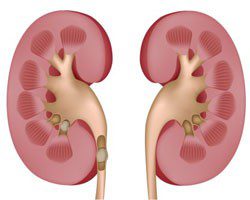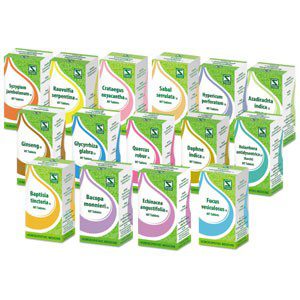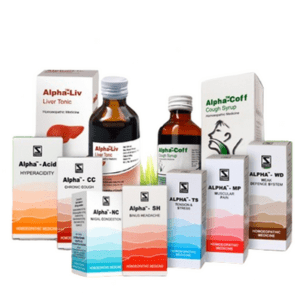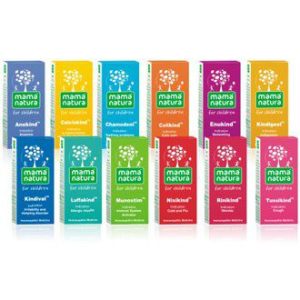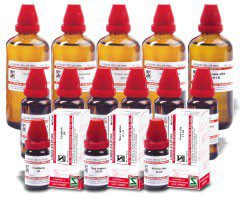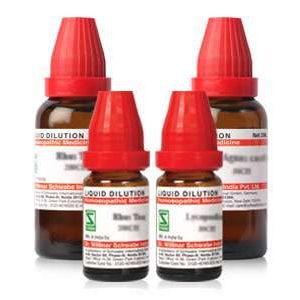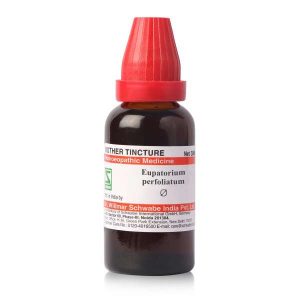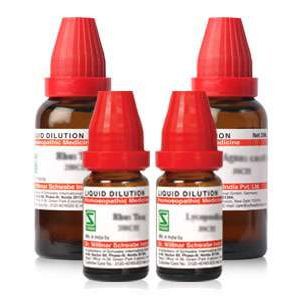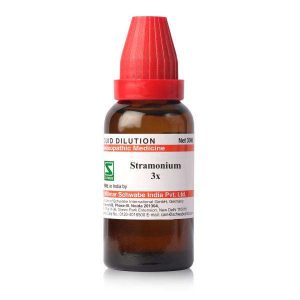Doctors Zone
Journal (JEBH)
Alpha™- Liv Drops
Alpha – Liv Drops Due to high demand from the market, for a formulation in drops for the liver, apart from the syrup already available in the market, Schwabe India developed this product. Introduction The liver plays a key role in metabolism. It has anabolic and catabolic, exocrine and endocrine functions. The liver is a blood reservoir, filter and store of different substances (e.g. glycogen, vitamins). It is the site of serum protein (e.g. albumin, prothrombin, fibrinogen) and enzyme synthesis. Metabolic processes (e.g. bilirubin, hormone, carbohydrate and lipid turnover) and the removal of toxic products are important liver functions. 1 Hepatotoxins (e.g. alcohol, tetracycline, acetaminophen, fungal toxins, and anabolic steroids) can cause specific damage to liver cells. Toxic hepatitis may be clinically silent or severe enough to lead to the rapid development of hepatic failure. Clinical features include hepatomegaly, enzyme abnormalities, fever, abdominal pain, anorexia, nausea, vomiting and weight loss. In patients with underlying cirrhosis, manifestations of portal hypertension may predominate. Aversion to fatty food, abdominal discomfort, nausea and vomiting after meals may be symptoms of 2 cholelithiasis. Jaundice results from accumulation of bilirubin. It has non-hepatic as well as hepatic causes. Hyperbilirubinaemia may be due to abnormalities in the 3 formation, transport, metabolism or excretion of bilirubin. TM Alpha -Liv Drops aids recovery and normalisation of liver functions. Severe liver disease needs specialised treatment. Indications: Slow liver functions, fatty liver, and for supportive treatment of hepatocellular jaundice and toxic liver damage.

Carduus Marianus Pentarkan® – Schwabe News Jan Mar 2019 – Schwabe India
Carduus Marianus Pentarkan®
Introduction
The liver is the largest and functionally most complex gland of the body. It plays a major role as an intermediary in the body metabolism. Furthermore, as an exocrine gland, it is the organ of bile production. It is also responsible for detoxification and elimination of endogenous as well as foreign substances. It takes part in immune reactions and in the synthesis of coagulation factors.
Hepatitis can be caused by viral or bacterial infections or by infestation with parasites. Diseases of the blood or immune system may interfere with hepatic metabolism. Many different types of medication (e.g. acetaminophen, oral contraceptives, chlorpromazine, isoniazid, halothane, androgens) can produce an adverse liver reaction in certain people. Possible symptoms are jaundice, fatigue, loss of appetite, nausea and vomiting, headache, abdominal pain, dark urine, generalised itching, fever and depression. Clinical findings include hepatomegaly, abdominal tenderness and liver enzyme abnormalities. Fungal toxins and unhealthy diet may cause liver damage. Alcohol-induced hepatic injury is a common problem. The fatty degeneration of the liver is the most common abnormality observed in chronic alcoholics. In patients with underlying cirrhosis, manifestations of portal hypertension may predominate.
Carduus Marianus Pentarkan® a combination of 4 proven homoeopathic remedies, is a suitable product for the treatment of chronic diseases of the liver such as fatty degeneration of the liver or as a supportive therapy in cases of advanced or serious hepatic disease.
Indications: Chronic diseases of the liver (hepatopathia) and their concomitant symptoms.
Composition:
Each tablet of 250 mg contains:
Acidum hydrofluoricum 5×25 mg
Aurum muriaticum natronatum 4×25 mg
Carduus marianus Q75 mg
Quassia Q25 mg
Excipients Q. S. to make 250mg
Proven indications of the individual ingredients in the sphere of claimed action:
Acidum hydrofluoricum is a remedy which covers digestive dysfunctions of the old or prematurely old due to chronic diseases. It is indicated for abdominal discomfort, enlarged liver, liver deterioration due to alcohol, flatulence, eructation, itching and distended blood vessels.
Aurum muriaticum natronatum finds its place in the management of fatty degeneration of the liver, hepatic cirrhosis and ascites. It acts on some metabolic dysfunctions of nervous origin, depression and mental derangement, arteriosclerosis and hypertension.
Carduus marianus is known for its action on the liver and the portal system. It is indicated for enlarged liver, hepatitis, gall-stone disease, hepatic cirrhosis and ascites. It acts on congestion of the portal vein, varicose veins and ulcers. Small appetite, nausea, retching, vomiting of green acid fluids, pain and sensitiveness in the region of the liver and spleen, jaundice, itching and apathy are covered.
Quassia is considered as a gastric organ tonic. Quassia is indicated for pain above the liver and spleen, pressure and sharp pain in the liver, and cirrhosis of liver with ascites. It acts on dyspepsia, acidity, heartburn, gastralgia and regurgitation of food.
Directions for use
Dosage: Unless otherwise prescribed, Carduus Marianus Pentarkan® ® (WSI) should be taken as follows:
For acute complaints, 1 tablet should be taken at hourly intervals until an improvement occurs, up to a maximum of 12 times a day. For subsequent treatment, 1 tablet should be taken 3 times a day.
Children should be given half of the adult dose.
Note: Please note that this product is not indicated in cases of acute intoxication.
Side effects: No side effects of Carduus Marianus Pentarkan®) are known.
Contra-indications: Do not use this product during pregnancy.
Interactions: No interactions between Carduus Marianus Pentarkan® and other products are known.
Presentation: Bottle of 20 g.
References:
1. Homoeopathic Materia Medica & Repertory by William Boericke, B. Jain Publishers, Delhi.
2. Encyclopedia of Med. Plants, Andrew Chevallier,Dorlin Kindersley,London, 1996 Ed.
3. CRC Handbook of Medicinal Herbs, James A. Duke, CRC, Florida; Salvati 1996; Yamamato 1983.
Recent Advancements in Basic Homeopathic Research – A Report on Two Significant Publication
In a study conducted at the Experimental Farm of the State University of Santa Catarina, Brazil, researchers investigated the impact of homeopathic treatments on piglets during the nursery phase. The study aimed to determine whether homeopathic agents could reduce fighting behavior, improve growth performance, and affect hematological, metabolic, and oxidative variables. The study included 108 weaned piglets divided into four groups: a negative control group receiving only the basal diet, and three groups receiving different homeopathic treatments at varying dosages.
Journal of Evidence Based Homeopathy Volume: 1, Issue: 1, January - June 2023
Comprehensive articles

Agrohomeopathy – A Review
Short cases

Unmasking the Intricacies: A Pyogenic Abscess Case Report

Lichen Simplex: A Singular Case Study

Ranula Unveiled: A Case Report and Management Approach

Lichen Simplex: A Singular Case Study

A Puzzling Presentation: A Case Report of Jaundice
Recent provings and updated materia medica

Acidum Formicum

Mygale

Thea Chinensis
Materia medica on phytohomeopathy

Chrysarobinum

Sanguinarinum nitricum

Thiosinaminum
Mother tincture

Asparagus Officinalis

Ginkgo Biloba

Rosmarinus Officinalis
Product watch

Alpha™- Liv Drops

Good Morning™ Constipation Drops

Zauber™ Hair Drops
Research News











